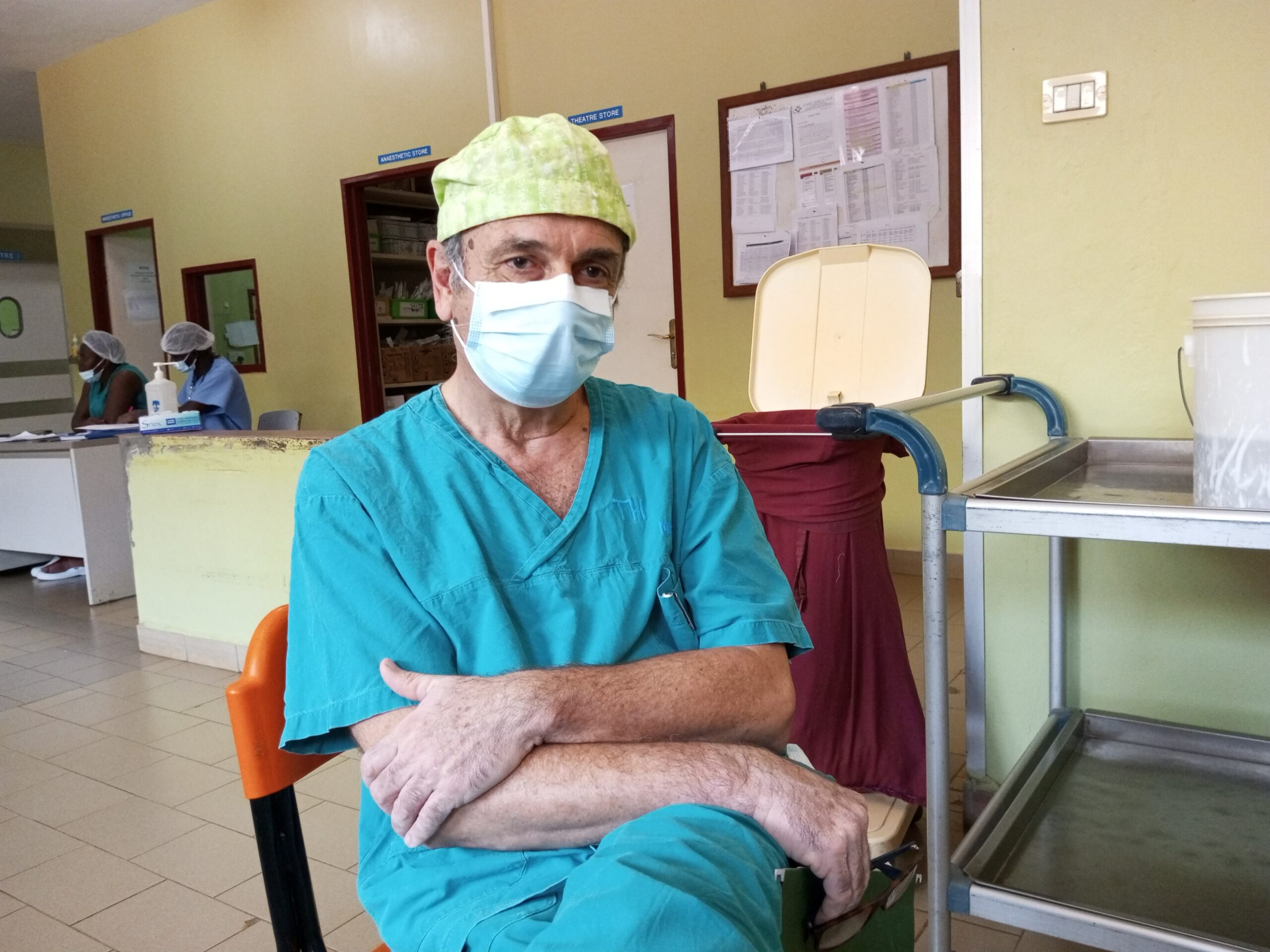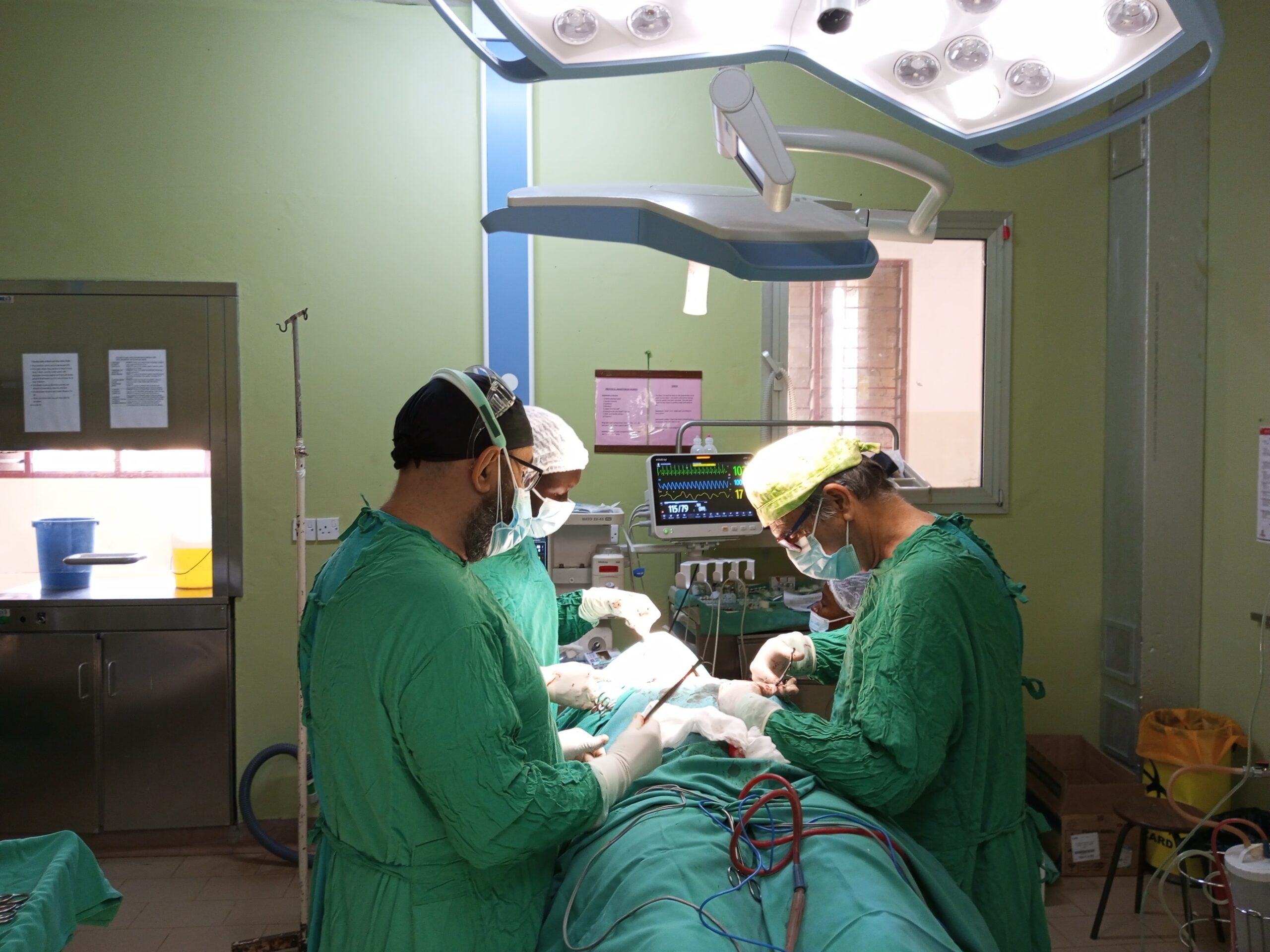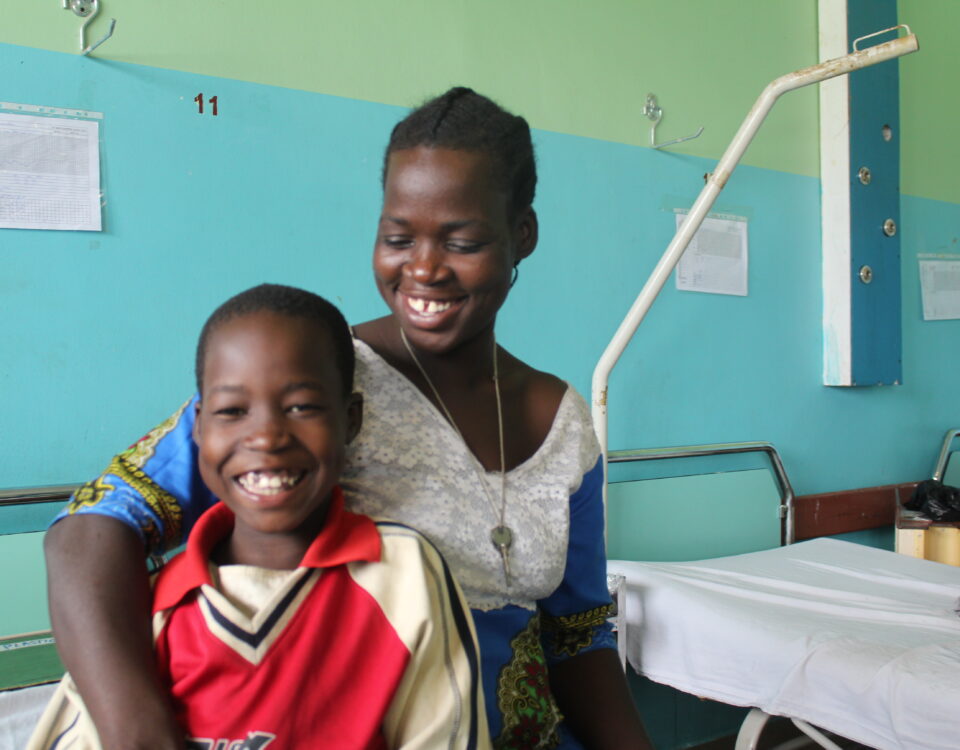Since 2012 a team of surgeons led by Dr. Roberto Santoro from the University of Florence, Italy have been organising a special camp at Lacor Hospital for all thyroid diseases; goiter, hyperthyroidism, grave’s disease and cancer. Since then, thousands have been screened and hundreds operated on.
“We chose Lacor Hospital because it is a very big hospital; one of the best in Uganda and there is a high accrual of patients,” says Dr. Roberto. Dr. Roberto and his team conduct the surgery for free. Patients are only required to pay for consultations in the outpatient department and a few lab investigations as may be required.
Due to the Covid-19 pandemic and later the outbreak of the Ebola virus disease in the country, the camp could not happen for nearly three years. And when it returned to Lacor, there were hundreds waiting. Surgery for thyroid diseases, especially goiter is very costly in Uganda. One patient said he was told to pay Uganda shillings 1.2m (about $400) to be operated on when he sought for treatment in one of the upcountry health facilities.
The majority of this region’s people (68%) live in poverty. This means that the camp is their only chance of accessing medical services for their thyroid disease. Thyroid disease is still a burden in Uganda due to iodine deficiency in the food and water and because of the presence of a particular goitrogen substance in the cassava that is widely eaten across northern Uganda. Cassava is a good source of nutrients and with its ability to withstand drought, it became the staple food with its leaves also edible.

Dr. Roberto Santoro, Head-neck Surgeon
And so this year’s camp saw a surge in the number of patients requiring thyroid treatment. Many had been trying to free themselves from goiter but the high costs involved meant that they fell short. “When we heard about the free camp over the radio in the evening, we packed our things and left for Lacor immediately the next morning,” says Ojok Isaac, a 54-year-old man who has been suffering from goiter for more than 12 years.
Although there were many like Isaac who came to the hospital, the camp could only operate on forty patients out of the hundreds that were screened. By the second day, a camp that was going to run for three weeks was fully booked up to the very last day and there wasn’t any room for new arrivals. Many left with their dreams dashed even though the surgeons were kind enough to still examine them and prescribe medicines that will ease their burden until the next camp.
The camp was meant for only a handful of the most vulnerable people in northern Uganda but once we shared the information on social media platforms, people came from as far as Soroti in the East and Hoima in the West. “We’ve been looking for money for five years so that my mother could undergo an operation for goiter but we couldn’t manage. We thought this camp would help us but we came when it was already full,” says a man who came all the way from Kampala in hopes of securing free treatment for his mother.
“We’re able to do operations for only about 40 patients,” says Dr Roberto. “But we expect to be able to [in the future] do more operations about thyroid.”
Dr. Roberto also hopes to establish a partnership between the University of Florence and Gulu University to train more Ugandan doctors to specialise in head-neck surgery.
Despite the good promise of the future, many who missed out would tell you they’d prefer to camp to last a few more months in Lacor. But a hospital in the savanna of sub-Saharan Africa has many tropical diseases to deal with and thyroid is just one of the many. A single camp cannot, therefore, go on for months as resources have to be allocated to fighting other diseases as well.


